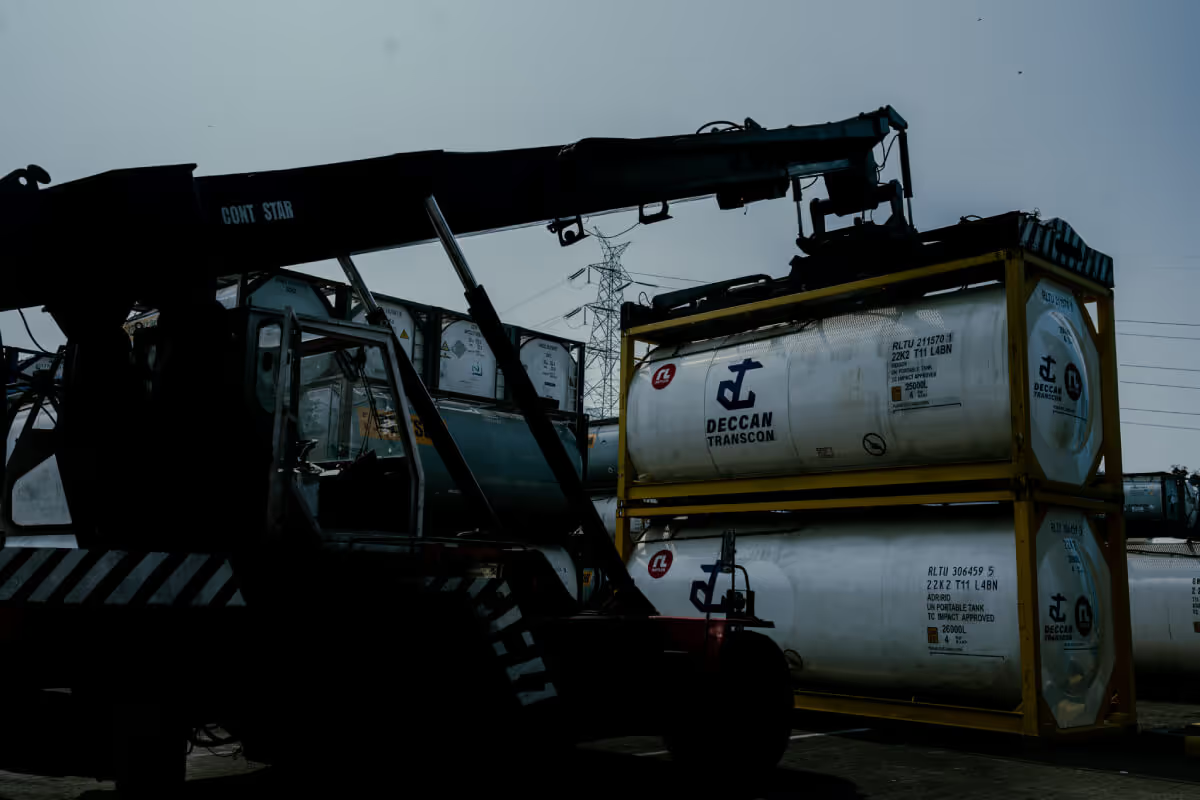In today’s global trade, the choice between leasing vs buying ISO tank containers is more than a financial decision. It’s about flexibility, safety, and efficiency in the way companies handle bulk liquids across borders. For shippers in chemicals, petrochemicals, food-grade products, and pharmaceuticals, ISO tanks are now the backbone of bulk liquid transport solutions.
With India emerging as a fast-growing hub for chemical and liquid bulk exports, companies are asking the same question: Should we buy ISO tank containers outright, or is it smarter to lease?
Let’s break down the decision and see where the real savings lie.
Why ISO Tank Containers Matter
An ISO tank container in India is more than just a vessel; it’s a standardized, globally compatible asset that simplifies multimodal transport. Built with stainless steel and framed to ISO standards, these tanks can move seamlessly across ships, rail, and road without transloading.
- Typical capacity: 21,000-26,000 liters.
- Lifecycle: 20-30 years with proper maintenance.
- Versatility: Suitable for hazardous chemicals, food-grade liquids, gases, and solvents.
Their reusability, safety features, and lower spill risk make them increasingly preferred over drums, IBCs, and flexibags.
Leasing vs. Buying ISO Tank Containers: The Big Picture
When weighing whether to lease or buy tank containers, companies usually consider:
- Capital investment - Buying locks up capital; leasing preserves cash flow.
- Flexibility - Leasing allows scaling capacity up or down based on seasonality or new contracts.
- Control - Ownership provides more autonomy over fleet deployment, design, and modifications.
- Maintenance & compliance - Leasing often shifts responsibility for tank upkeep and certifications to the lessor.
According to the International Tank Container Organisation (ITCO), the global ISO tank fleet surpassed 800,000 units in 2024, with leasing firms controlling over 50% of those tanks. This indicates that flexibility through leasing is the route most players are taking.
When It Makes Sense to Buy ISO Tank Containers?
- Long-term, predictable demand: If you’re moving consistent volumes of the same product on stable lanes, owning tanks ensures long-term cost efficiency.
- Customization needs: Some chemicals require baffle tanks, lined tanks, or specialized coatings. Buying gives you control to customize.
- Residual value: Owned tanks retain resale value after years of service.
- Direct operating model: Owning may work for companies that want full visibility, no third-party dependencies, and internal fleet management.
When It Makes Sense to Lease ISO Tank Containers?
For many exporters, leasing functions like an ‘on-demand fleet’, paying for use rather than ownership.
- Variable or seasonal demand: Agrochemicals, paints, and specialty chemicals see peaks around sowing or production cycles. Leasing matches demand without idle fleet costs.
- New trade lanes: Testing a new geography or market? Leasing reduces upfront risk until lanes stabilize.
- Working capital priorities: Leasing avoids heavy capex, keeping funds free for core operations like R&D or plant expansion.
- Maintenance included: Many chemical transport container leasing providers cover inspections, regulatory tests, and depot costs.
Hidden Costs in Leasing vs. Ownership
On paper, the choice looks simple, but real-world costs tip the balance:
- Repositioning charges: If tanks end up in a location without return cargo, leasing firms may charge high fees for repositioning. Owned fleets face the same, but you absorb and plan for it internally.
- Idle time: Owned tanks that sit idle still rack up storage and depot charges. Leasing avoids this but can penalize late returns.
- Maintenance schedules: Ownership means bearing 2.5-year and 5-year mandatory tests (pressure, thickness, safety). Leasing contracts may cover this, but check for pass-through costs.
- Insurance and liability: Owned tanks need comprehensive insurance. Lease contracts often bundle insurance but may limit coverage.
- Long-haul repositioning: Exporters moving tanks back empty from destinations like Europe or the US may see this cost erase savings from ownership.
Strategic Considerations for Indian Exporters
- Agrochemical exporters: Leasing aligns well with seasonal cycles, especially during Kharif and Rabi demand surges.
- Petrochemicals & solvents: Ownership may be cost-effective if volumes and lanes are stable.
- Pharma-grade liquids: Leasing provides flexibility when demand for temperature-controlled tanks is intermittent.
- SMEs: Leasing provides access to tanks without the barrier of upfront investment.
Role of ISO Tank Agencies and Integrated Providers
For companies navigating this decision, working with specialists in ISO Tank Services in India makes a difference. Logistics Solution Provider like Deccan Transcon offers:
- Leasing access + owned fleet options: A blended model based on your trade profile.
- Global presence: Depots and operations in India, UAE, Malaysia, Thailand, and China.
- 3,000+ ISO tanks ranging from 24KL to 26KL, with food-grade and baffle tanks.
- End-to-end support: From customs clearance to inland repositioning and multimodal connections.
This integrated approach ensures shippers can scale capacity, minimize hidden costs, and retain compliance confidence.
The Bottom Line
The leasing vs. buying ISO tank containers debate doesn’t have a one-size-fits-all answer. If your business thrives on bulk liquid transport solutions with predictable volumes, buying ensures long-term savings and control. If volatility, seasonality, or capital constraints shape your operations, leasing gives you the agility you need.
Most importantly, Indian exporters should treat this as a portfolio decision, own some core fleet, and lease the rest flexibly. With a logistics solutions provider like Deccan Transcon, backed by 3,000+ ISO tanks, global agency solutions, and strong liquid logistics expertise, you can balance cost, risk, and growth with confidence.


